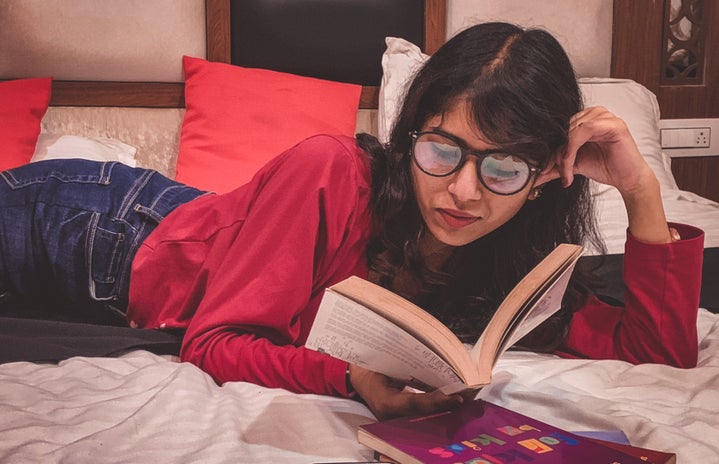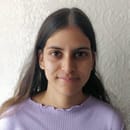We’ve all been there—and by ‘there’, I mean going from reading books upon books every week as a child, to not having touched a book in years as an adult. And here I am, a Comparative Literature student at King’s College London, telling you this. So, what went wrong?
For university students like us, the issue is not so much with the act of reading itself, as it is with reading the wrong books for the wrong reasons. Being trained to read analytically for so long, with the whole of secondary education being based around a canon full of seemingly-impenetrable classic literature, is enough to kill the childhood passion for reading in anyone—even for people like me, who love breaking it down, studying it, and analysing it, going so far as to choosing to do so for their degree.
Only recently did I get to the root of why I was unable to read for pleasure and start to break the rut of only reading for the sake of academia. Now, I want to share what I found with you, in the hopes that it might lead you to want to read more than just this article!
- Read poetry (or short stories)
-
Poetry is a great way back into reading, especially when you’re looking to fit it around a busy schedule. It comes in all types and forms, with all sorts of interesting themes and techniques that might interest you, and often, they have a personal dimension that you can relate to, making them even more immersive. Poetry Foundation is a great website at your disposal, where you can filter by subject, form, period, and region (where the poet is from). Poetry In Voice is another excellent resource, where you can filter by either subject or mood—so whether you’re looking for love or war, ‘tender’ or ‘tortured’, it’s got you covered. And if you’re really not a poetry person, short stories are a good prose alternative – or there’s no reason why you can’t check out both!
I, personally, read a whole range of poetry when I started trying to read for fun again, from the capital Romantic to the lowercase romantic, from unknown authors’ self-published PDF books to famous collections by internationally-renowned writers. It’s normal not to always like everything by a particular poet, and it’s especially important to be able to distinguish between what is considered to be ‘good’ and what you personally like; take the ‘guilt’ out of your ‘guilty pleasures’!
The length of poetry and short stories as a form will always be on your side, offering an accessible way into trying new things. There’s so much to explore and choose from, you’re bound to find something you like.
- Identify THE THINGS you like (style is just as important as theme!)
-
This doesn’t have to involve any complex analysis. For example, if you read a poem or short story about the theme of memory that you really liked, ‘memory’ can be something you note down. However, think about the style of the text just as much as the themes—the experience of reading a book with interesting subject matter, but written in a completely inaccessible, sleep-inducing way, is a pretty common one – so the style is really half the battle!
Now, after reading all that poetry, I note down that two of the themes I found the most interesting were ‘memory’ and ‘identity’. This’ll come in handy later!
Next, I realise that all my favourite writers are able to evoke a strong sense of atmosphere in their works, even though their language is very spare and accessible, because of the way they all use colour. Once I noticed this, however simple it seems, identifying literature I would genuinely enjoy reading became a lot easier—which leads us onto the next step.
- Read widely—not just the classics
-
This is an important part. Much of my lack of desire to read in my free time came from thinking I should always be reading classics or non-fiction as a literature student, always analysing and seeing how I could apply their themes to my future studies. Most of the time I spent reading was noting things down for essays, or thinking about how I really wasn’t interested in the book I was trying to read, or just plain wondering when it would be over. (There’s nothing wrong with classics, of course—the only problem is with reading them because you feel like you have to!)
So let’s unlearn that, and start from the beginning—with the themes that I remember liking from the last step: ‘memory’, and ‘identity’. You can easily find books for your favourite themes by either simply googling ‘books about [theme]’, but you can also consult forums or social media, like Reddit (r/booksuggestions and r/suggestmeabook are good starting points, or if you know you like a specific genre, you can go into that particular subreddit). You can even make use of your university’s Library Search, which, with a little filtering, will give you a selection of books under the tag for your chosen theme.
As I’m looking through the search results, I find a book which catches my eye—‘On Earth We’re Briefly Gorgeous’ by Ocean Vuong, which deals with both of my favourite themes – and it’s far from a classic, since it was published in 2019! Here’s where style comes into play—Amazon’s ‘Look Inside’ feature is helpful for giving you an impression of whether you’ll actually like how the book is written, which you can compare to your notes on style from the last step. Immediately, I see phrases like ‘black glass’, ‘faded-blue Chevy’, ‘green horizon’. ‘I’ll probably like this book’, I think.
I end up being right—since I read it, it’s been one of my favourite books of all time!
Don’t worry if you don’t get it right the first time, though – it’s all a process – which leads me onto the process of reading itself:
- Don’t analyse WHILE YOU READ (Or: Read books you can’t analyse)
-
This is why it’s important to read widely, and especially, to read things far away from the subject you are studying; not only do you need to rest your mind, but you’ll also feel less inclined to analyse everything that’s going on in the book as you read.
Even for literature students like me, it’s possible—you can choose books that are almost impossible to analyse or apply to your current studies without extensive research. For example, I recently read Yoko Ogawa’s ‘The Memory Police’—an incredible book, but one which I would struggle to discuss in the context of any of the texts I’m studying at the moment without having to think at length about it, because I’m not studying anything related to memory at the moment. In this way, I was able to appreciate the book much more for what it is—a masterful use of language to build a poignant and immersive world for the reader—so was able to admire Ogawa’s book as a work of art, rather than something to be analysed for its themes.
I felt that when I finished the book, I was satisfied not because I’d learnt anything, but for the simple and unique reason of having finished a good story—something I’d only just learnt how to do again, and something which I hope this article has encouraged you to try doing, too.


